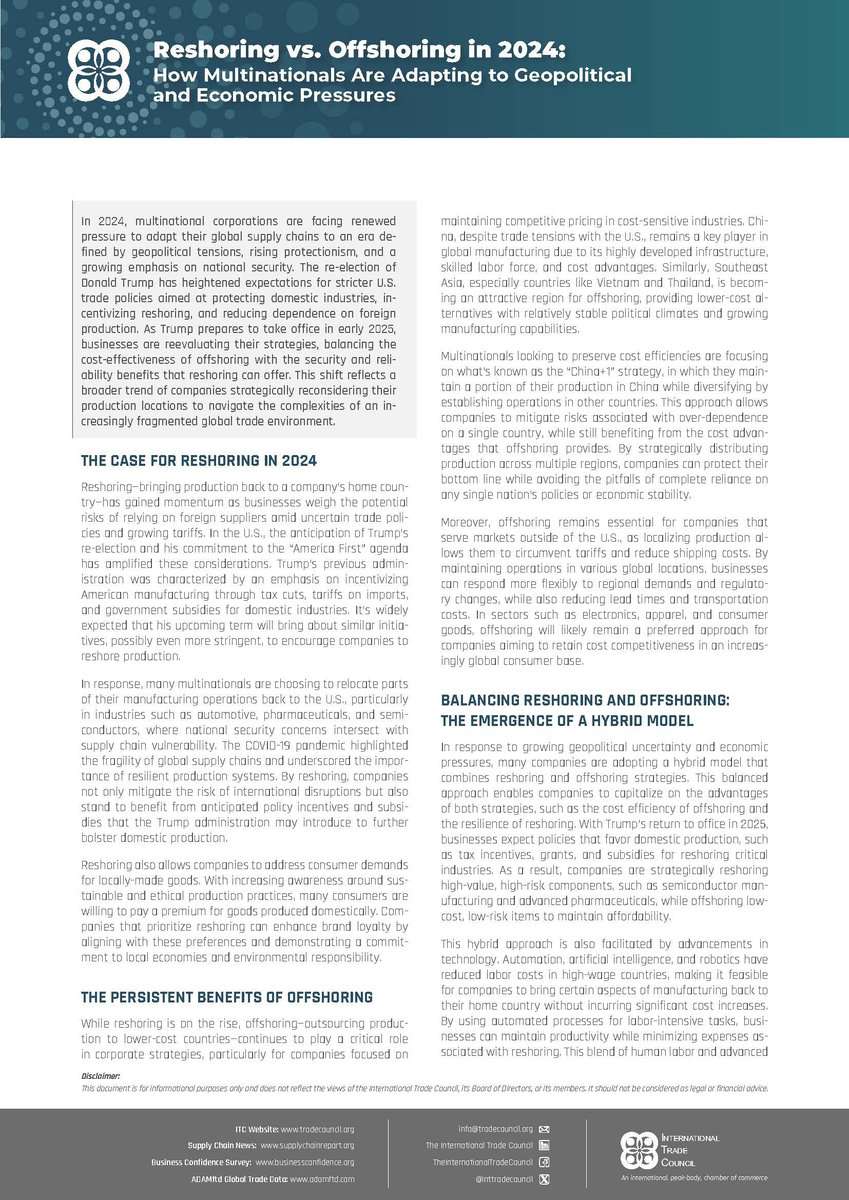About the Book
This white paper provides a detailed analysis of how multinational corporations are adapting their global supply chains to navigate rising geopolitical tensions and economic pressures. The re-election of Donald Trump has heightened expectations for stricter U.S. trade policies, incentivizing reshoring while adding complexity to offshoring strategies. Reshoring is gaining traction due to anticipated policies supporting domestic production, including tax incentives, tariffs on imports, and subsidies for key industries such as semiconductors and pharmaceuticals. Meanwhile, offshoring remains crucial for companies prioritizing cost efficiency, with strategies like “China+1” helping mitigate overdependence on single markets.
The paper highlights the emergence of a hybrid model, where businesses balance reshoring and offshoring to enhance supply chain resilience while maintaining competitiveness. It explores the role of automation and AI in reducing labor costs for reshored operations and emphasizes the importance of regional trade agreements like CPTPP and USMCA in optimizing global production. Recommendations include diversifying supply chains, investing in advanced technologies, and preparing for shifts in trade policies under Trump’s administration. This comprehensive analysis underscores the importance of adaptability in a fragmented global trade landscape.

